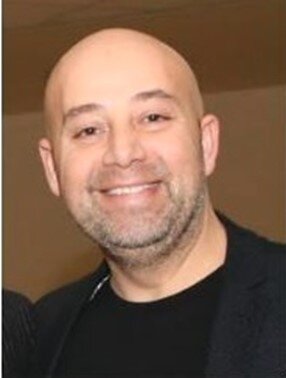Stellantis Employee Resource Group Hopes to ‘MEET’ Soon
By Paul Natinsky
As the former Fiat Chrysler Automobiles (FCA) becomes Stellantis, the company’s Middle Eastern employees are also undergoing change.
Employees from throughout the Middle East have joined to form an Employee Resource Group (ERG) called Middle Eastern Employees Together (MEET). ERGs provide mentoring for employees as well as cultural sharing experiences for members.
The idea for the group is the brainchild of Bashar Cholagh, a purchasing executive at Stellantis. In 2016, Cholagh noticed that there were Asian, Latin American, and other cultural and regional groups of employees that formed ERGs, but no such group for Middle Eastern employees, despite the fact that there is a substantial number of employees from that part of the world among Stellantis’ 18,000 employees.
Bashar Cholagh
So, Cholagh joined the Asian group and shortly thereafter began laying the groundwork for a Middle Eastern group. In 2018, he put together a proposal. Stellantis approved it and Cholagh launched the group in 2019. The next steps were finding officers, creating a board and committees, and then recruiting members.
Cholagh made a point of constructing a board representative of the entire region, not just Chaldeans. He found passionate Palestinians, Israelis, Muslims, and Christians to populate the board and serve on its committees. MEET has three committees that are representative of the group’s focuses.
Samhar Kashat chairs the Community Committee, which liaises with non-profit community organizations affiliated with various Middle Eastern MEET members. Kashat, who works as a business analyst in the IT department at Stellantis, like Cholagh, is Chaldean. Kashat’s committee meets monthly, as does the MEET board, to review opportunities and plan activities.
The Cultural Committee helps Middle Easterners learn about one another’s cultures, using a Stellantis intranet to share recipes, educational materials, and music.
Cholagh said a 15-week YouTube series on delicacies from around the Middle East went over extremely well, receiving many “likes” and much positive feedback.
In the midst of community activities and cultural celebration, MEET provides a mentorship program through its Career Committee that features 150 mentors from the vice president and director ranks within Stellantis. They are from a wide array of departments within the company and are not necessarily Middle Eastern.
The popular Career program was the first to launch, right at the onset of COVID. Mentors and mentees—who are from the mid-level ranks—meet on a monthly basis for a half-hour sit-down. Discussions can be wide ranging or on specific issues. Common discussions include overcoming obstacles and providing guidance. The mentors help ambitious employees to align their work with their career aspirations. The approach ends up combining mentorship with networking.
Before being forced into “virtual” mode, the MEET program began with a bang. MEET launched in November 2019, two months before COVID shut much of the world down. There was a huge celebration at Stellantis Headquarters in Auburn Hills, right in the middle of the 15,000-person building. The program featured ethnic dancers, Middle Eastern music, baklava and other culinary delicacies.
MEET has survived its inaugural, pandemic-dampened year, and it and continues to grow. Cholagh estimates the 300-member group eventually will reach 1,000 members. About half of the current roster are Chaldeans. About 80 percent of the group is in metro Detroit, but Cholagh says that’s because most of the company’s employees are based here. He expects to recruit Stellantis employees from other regions.
While MEET plans to actually meet, physically, that occurrence will have to wait for 2022. The group’s pandemic protocols are governed by those of Stellantis, and the company plans to delay in-person events through the end of the year.
The delay hasn’t stopped MEET’s leaders from dreaming up plans for the future on their Zoom calls, including possible partnerships with hunger fighters Forgotten Harvest and volunteer homebuilders Habitat for Humanity.
Kashat is eager to roll up his sleeves and get back to work with in-person MEET activities as soon as it’s safe to do so. He said he likes that the group “explores a lot and it shows there is a lot of care from Stellantis and the MEET Board, especially how we reach out and how we get involved.”
As he looks toward next year, for Cholagh, the reward is also simple. He enjoys “seeing the (Middle Eastern) community uplifting each other and working together.”


